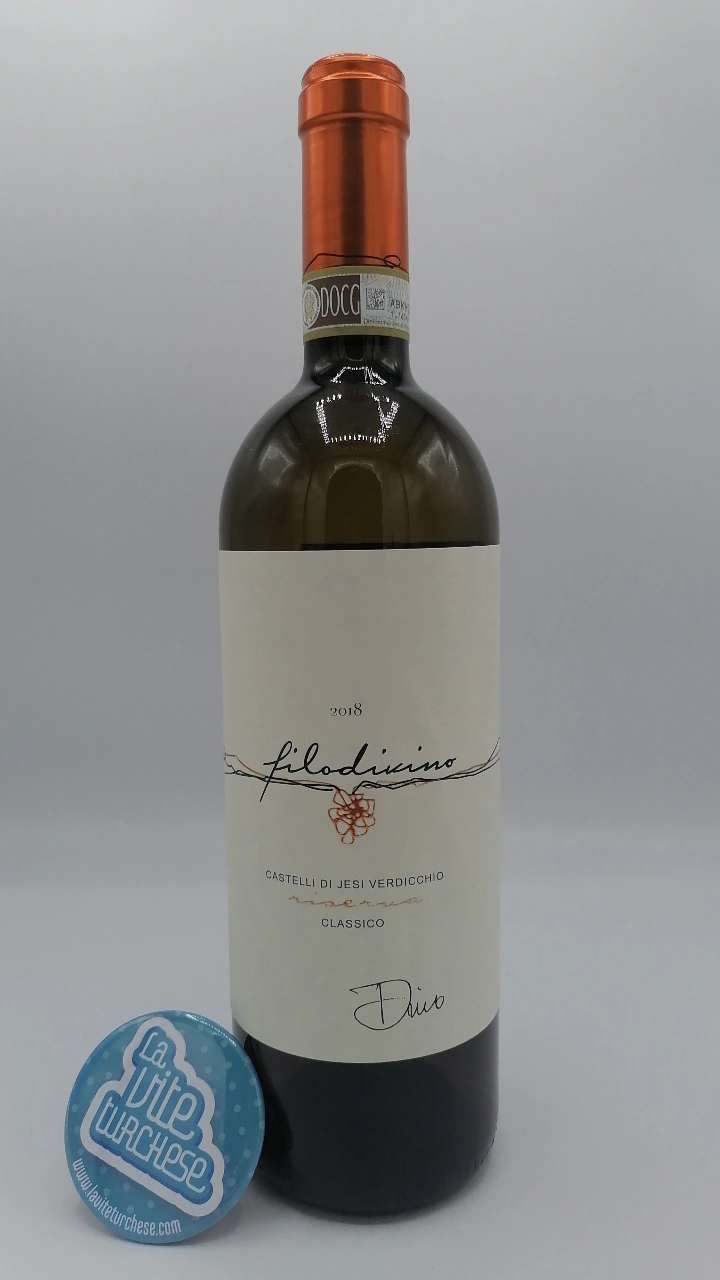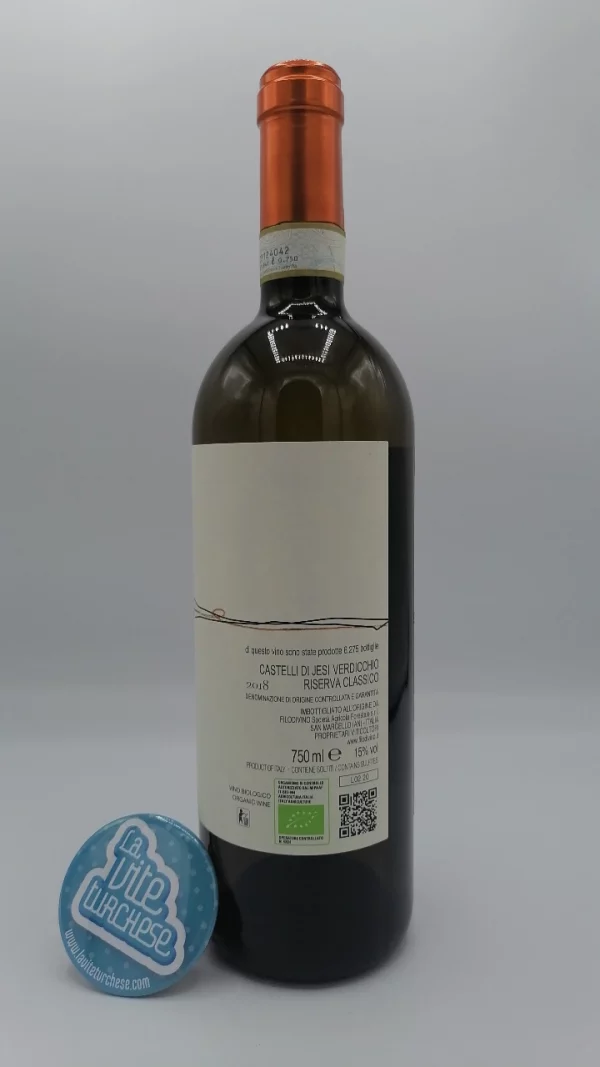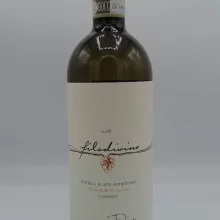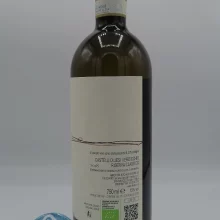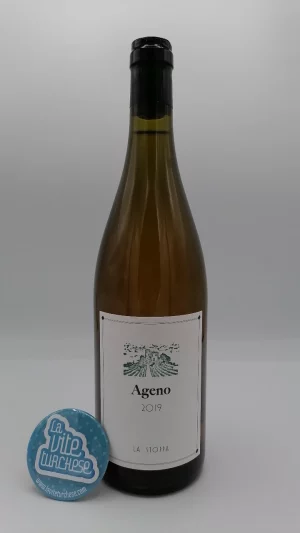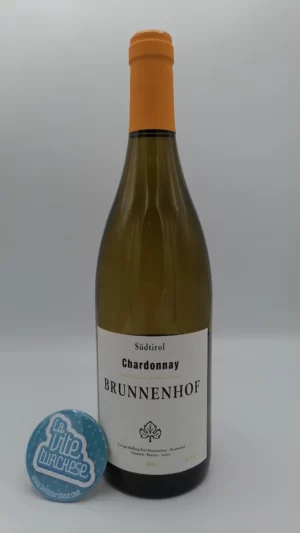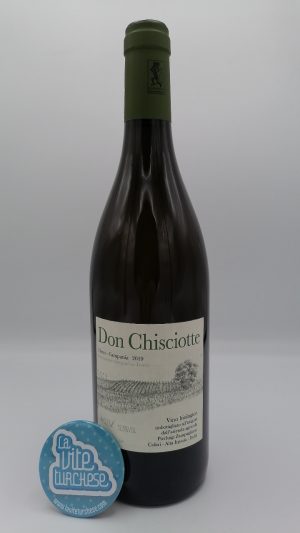Filodivino – Dino Verdicchio dei Castelli di Jesi Riserva – 2018
The history of viticulture in the Marche region can be summed up in Verdicchio, a grape with extraordinary primary qualities in which the influence of the Adriatic Sea on one side and the Apennines on the other guarantee a good level of acidity and ageing potential. The grapes for the Riserva version come from very old vineyards of 45 years old on clay/limestone soils with very low yields. After a very soft pressing, fermentation takes place in stainless steel tanks at a partially controlled temperature and then remains on the fine lees for 12 months with annexed malolactic fermentation, after which it is refined for another 24 months in the bottle in accordance with the regulations. The result is a wine with intense aromas of citrus and fruit, which is textured and mineral in the mouth but with a vertical and refreshing finish. Recommended!
- Producer Filodivino
- Name: Dino Verdicchio dei Castelli di Jesi Riserva
- Grape Variety: 100% Verdicchio
- Vintage: 2018
- Alcohol Content: 15%
- Bottle Size: 750ml
- Production: 5300 bottles
Productive Notes: fermentation on fine lees for 12 months in stainless steel, including malolactic fermentation followed by 24 months of bottle ageing.
Wine naturally contains solphites
26,00€
1 in stock
Description
Founded in 2013 with centuries of winemaking history behind it, the Filodivino winery is one of those businesses founded by the desire to achieve something great in a new land. The company is run by Alberto Gandolfi and his wife Alida who moved from Milan from textile entrepreneurs to wine producers in the Marche region by renovating an old farmhouse and buying vineyards. With about 20 hectares in the municipality of San Marcello in the province of Ancona, they cultivate the region’s indigenous grapes such as Verdicchio and Lacrima d’Alba, where the vineyards are over 50 years old in some cases and the morphology of the land together with a Mediterranean/mountainous microclimate ensure that the grapes ripen well. They follow nature in parallel, using certified organic techniques with minimal thinning and selection of bunches in the vineyards, using indigenous yeasts with long macerations in the vinification process and, lastly, using avant-garde ageing systems in cement eggs and used wood, all inside underground rooms in compensation for innovation. A divine job on their part.
You may also like…
-
-
Out of stock
-
Out of stock



